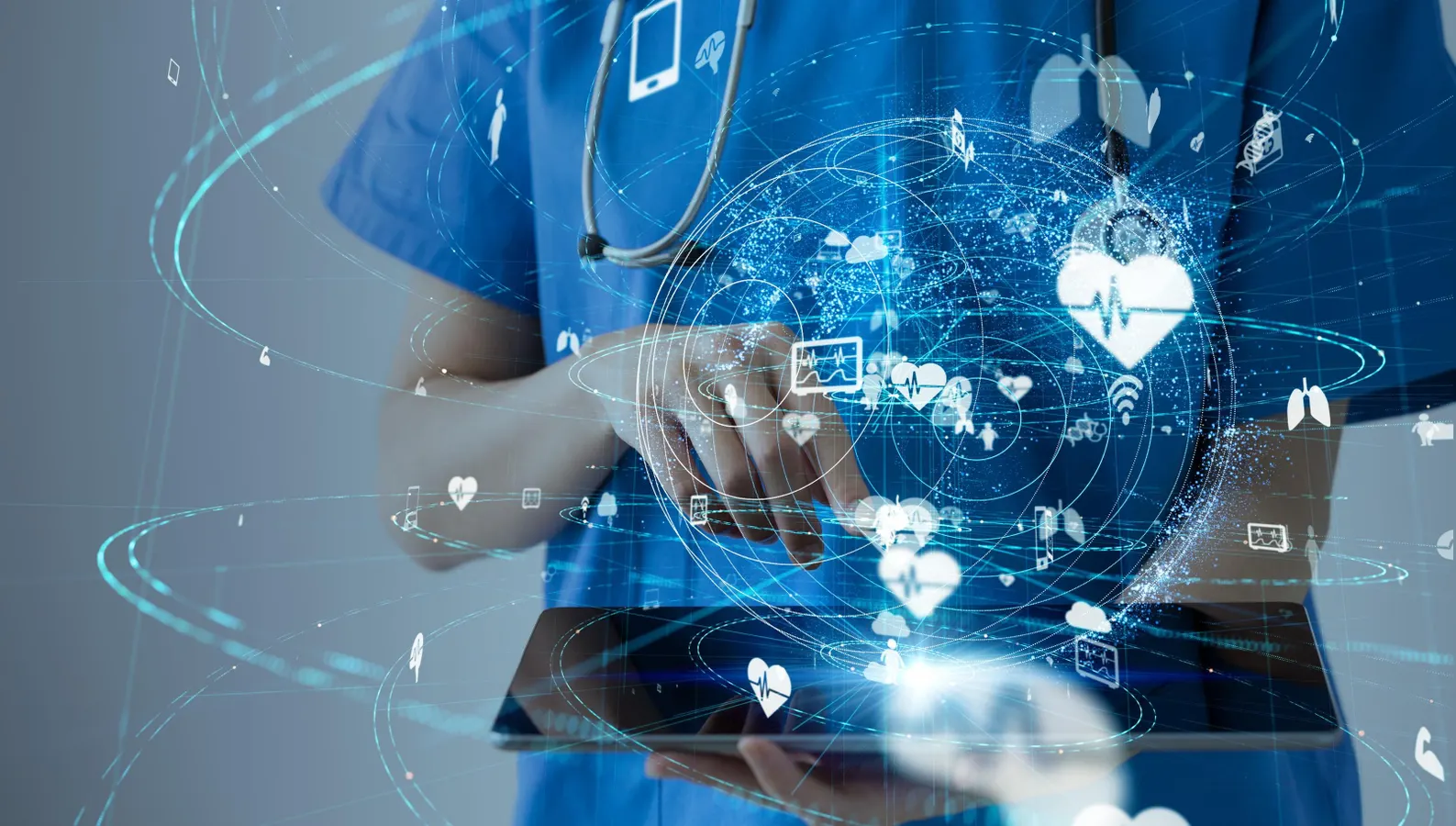In today’s fast-evolving world, healthcare innovation is revolutionizing how medical care is delivered, experienced, and improved. From AI diagnostics to wearable technology and telemedicine, innovative solutions are shaping a new era of personalized, efficient, and accessible healthcare.
In this article, we’ll explore what healthcare innovation means, its key areas, the technologies driving change, and how it’s impacting patients, providers, and global health systems.
What Is Healthcare Innovation?
Healthcare innovation refers to the development and implementation of new ideas, methods, technologies, and systems that improve health outcomes, streamline operations, and reduce healthcare costs. These innovations can be clinical, technological, organizational, or policy-related.
Innovation in healthcare focuses on:
- Improving patient care and outcomes
- Enhancing access to healthcare services
- Reducing operational inefficiencies
- Promoting preventive care and wellness
Why Healthcare Innovation Matters

- 🌐 Expands access to care, especially in underserved and remote areas
- 💡 Solves complex medical challenges through advanced diagnostics and treatments
- 📉 Reduces costs by streamlining workflows and eliminating redundancies
- 🏥 Improves patient experience with personalized and real-time care
- 🧬 Encourages research and development of life-saving therapies
Key Areas of Healthcare Innovation
1. Digital Health and Telemedicine
Virtual consultations, mobile apps, and telehealth platforms allow patients to access care anytime, anywhere. This innovation surged during the COVID-19 pandemic and continues to redefine care delivery.
2. Artificial Intelligence (AI) and Machine Learning
AI is being used for predictive analytics, medical imaging, and decision support systems. It helps detect diseases like cancer earlier and more accurately than traditional methods.
3. Wearable Devices and Remote Monitoring
Smartwatches, fitness trackers, and biosensors track vital signs, activity levels, and sleep patterns, enabling continuous health monitoring and early intervention.
4. Robotic Surgery and Automation
Robotic systems offer precision, reduced recovery times, and fewer complications in surgeries. Automation also aids in pharmacy dispensing, diagnostics, and hospital management.
5. Genomics and Personalized Medicine
Innovations in DNA sequencing and gene editing (like CRISPR) are opening doors to personalized treatment plans tailored to individual genetic profiles.
6. 3D Printing in Healthcare
3D printing is used for prosthetics, dental implants, custom surgical tools, and even bioprinting tissues and organs for transplant research.
7. Electronic Health Records (EHRs) and Interoperability
Modern EHRs ensure seamless data sharing among healthcare providers, improving coordination and reducing errors.
Benefits of Healthcare Innovation
- ✅ Improved Diagnosis & Treatment: Faster, more accurate decision-making tools help doctors provide better care.
- ✅ Increased Efficiency: Automation and AI reduce the administrative burden on healthcare workers.
- ✅ Enhanced Patient Engagement: Digital tools empower patients to take charge of their health.
- ✅ Cost Savings: Innovation helps cut unnecessary procedures and hospitalizations.
- ✅ Global Health Impact: Mobile health technologies improve care delivery in low-resource settings.
Challenges in Healthcare Innovation

Despite its potential, innovation in healthcare faces several challenges:
- Regulatory Barriers: New technologies must meet strict safety and efficacy standards.
- Data Privacy and Security: Protecting sensitive patient data is critical in digital healthcare.
- Integration Issues: New systems must be compatible with existing healthcare infrastructure.
- Cost of Implementation: High upfront investment can be a barrier, especially for small providers.
Examples of Real-World Healthcare Innovations
- AI in Radiology: Companies like Aidoc and Zebra Medical use AI to detect anomalies in medical images within seconds.
- Virtual Reality Therapy: VR is used to treat PTSD, anxiety, and chronic pain with immersive experiences.
- Mobile Health Apps: Apps like MyFitnessPal, Headspace, and Apple Health track wellness, mental health, and physical activity.
- Remote Patient Monitoring: Devices like Dexcom (for diabetes) allow real-time glucose monitoring without fingersticks.
The Future of Healthcare Innovation
As technology continues to advance, here’s what we can expect:
- 🌱 Sustainable healthcare solutions focused on environmental impact
- 🌍 Global digital health networks enhancing international collaboration
- 🧠 Neurotechnology integrating brain-machine interfaces for rehabilitation
- 💊 Smart drug delivery systems for targeted therapy
- 🔐 Blockchain for health records to enhance security and trust
How You Can Support Healthcare Innovation
- 🧑⚕️ Stay informed about emerging technologies and trends
- 💬 Participate in pilot programs, user feedback, and health tech trials
- 💡 Encourage policy reform to support innovation and data transparency
- 📚 Promote education and training in digital health and bioinformatics
FAQ’s
1. What is healthcare innovation?
Healthcare innovation refers to the development and implementation of new ideas, technologies, services, or models that improve patient outcomes, enhance care delivery, reduce costs, or make healthcare more accessible and efficient.
2. How is technology driving healthcare innovation?
Technologies like artificial intelligence (AI), telemedicine, wearable devices, and electronic health records are revolutionizing healthcare by enabling faster diagnoses, personalized treatment plans, remote care, and streamlined operations.
3. Why is healthcare innovation important?
Innovation in healthcare is crucial for addressing modern challenges such as rising costs, aging populations, chronic diseases, and healthcare disparities. It helps create smarter, safer, and more sustainable health systems.
4. What are some examples of healthcare innovation?
Examples include AI-powered diagnostic tools, 3D-printed prosthetics, virtual reality therapy, robotic surgery, mobile health apps, and genome-based personalized medicine.
5. What role does artificial intelligence play in modern healthcare?
AI assists with tasks like analyzing medical images, predicting disease outbreaks, automating administrative duties, and providing decision support to clinicians for more accurate and timely care.
6. How does healthcare innovation benefit patients?
Patients benefit from quicker diagnoses, fewer errors, more personalized treatments, improved access through telehealth, and proactive care through health monitoring technologies.
7. What are the challenges of implementing healthcare innovation?
Challenges include high costs of adoption, data security concerns, resistance to change among providers, regulatory hurdles, and ensuring equitable access to new technologies.
8. How can healthcare professionals stay updated on innovation trends?
Professionals can stay informed by attending medical conferences, subscribing to health tech journals, participating in webinars, joining innovation forums, and following reputable healthcare innovation blogs and organizations.
Conclusion: Embracing Innovation for a Healthier Tomorrow
Healthcare innovation is no longer optional—it’s essential. From diagnosing diseases faster to personalizing treatments and delivering care remotely, innovative solutions are transforming how we think about health. By embracing innovation, we not only improve patient outcomes but also create a more efficient, inclusive, and resilient global health system. Whether you’re a healthcare professional, policy maker, tech developer, or patient—your role in advancing healthcare innovation matters.





Leave a Reply